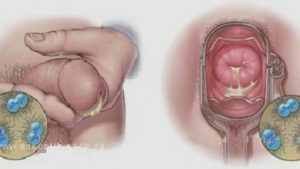Gonorrhoea is a sexually transmitted infection also known as the ‘clap’ or ‘drip’
Gonorrhoea can be treated with antibiotics, but doctors are finding the condition is becoming resistant to some common antibiotics.
What causes gonorrhoea?
Gonorrhoea is caused by Neisseria gonorrhoeae, a bacterium that can grow and multiply easily in the mucous membranes of the body. Gonorrhoea bacteria can grow in the warm, moist areas of the reproductive tract, including the cervix (opening of the womb), uterus (womb) and fallopian tubes (egg canals) in women, and in the urethra (the tube that carries urine from the bladder to outside the body) in women and men. The bacteria can also grow in the mouth, throat and anus.
How do I know if I have gonorrhoea?
Not all people infected with gonorrhoea have symptoms, so knowing when to seek treatment can be tricky. When symptoms do occur, they often appear from two to ten days after exposure, but can take up to 30 days and include the following:
Gonorrhoea symptoms in women
1. Greenish yellow or whitish discharge from the vagina
2. Lower abdominal or pelvic pain
3. Burning when urinating
Conjunctivitis (red, itchy eyes)
4. Bleeding between periods
5. Spotting after intercourse
6. Swelling of the vulva (vulvitis)
7. Burning in the throat (due to oral sex)
8. Swollen glands in the throat (due to oral sex)
In some women, symptoms are so mild that they go unnoticed.
Many women with gonorrhoea discharge think they have a yeast infection and self-treat with medications purchased over-the-counter. Because vaginal discharge can be a sign of a number of different problems, it is best to always seek the advice of a doctor to ensure correct diagnosis and treatment.
Gonorrhoea symptoms in men
1. Greenish yellow or whitish discharge from the penis
2. Burning when urinating
3. Burning in the throat (due to oral sex)
4. Painful or swollen testicles
5. Swollen glands in the throat (due to oral sex)
In men, symptoms usually appear five to seven days after infection.
Can gonorrhoea be cured?
Yes. Gonorrhoea can be treated and cured. However, gonorrhoea resistance to antibiotics is a growing problem according to Public Health England.
This infection is very good at developing resistance to new drugs all of the time and ‘frontline’ treatments have to keep being changed to keep ahead.
What happens if I don’t get my gonorrhoea treated?
Untreated gonorrhoea can cause serious and permanent problems in both women and men.
In women, if left untreated, the infection can cause pelvic inflammatory disease, which may damage the fallopian tubes (the tubes connecting the ovaries to the uterus) or even lead to infertility, and untreated gonorrhoea infection could increase the risk of ectopic pregnancy (when the fertilised egg implants and develops outside the uterus), a very dangerous condition.
In men, gonorrhoea can cause epididymo-orchitis, a painful condition of the testicles that can sometimes lead to infertility if left untreated. Without prompt treatment, gonorrhoea can also affect the prostate and can lead to scarring inside the urethra, making urination difficult.
Gonorrhoea can spread to the blood or joints. This condition can be life-threatening. Also, people with gonorrhoea can more easily contract HIV, the virus that causes AIDS. People with HIV infection and gonorrhoea are more likely than people with HIV infection alone to transmit HIV to someone else.
How does gonorrhoea affect pregnancy and childbirth?
Gonorrhoea in a pregnant woman can cause premature delivery or spontaneous abortion. The infected mother may give the infection to her infant as the baby passes through the birth canal during delivery. This can cause blindness, joint infection, or a life-threatening blood infection in the baby. Treatment of gonorrhoea as soon as it is detected in pregnant women will lessen the risk of these complications. Pregnant women should consult a doctor for appropriate medications.
How can I prevent infection?
To reduce your risk of infection:
1. Use condoms correctly every time you have sex.
2. Limit your number of sexual partners, and do not go back and forth between partners.
3. Practise sexual abstinence, or limit sexual contact to one uninfected partner.
4.If you think you are infected, avoid sexual contact and seek medical advice.
Any genital symptoms such as discharge or burning during urination or an unusual sore or rash should be a signal to stop having sex and to seek medical advice promptly. If you are told you have gonorrhoea or any other sexually transmitted infection and receive treatment, you should notify all of your recent sex partners so that they can be tested and treated.


Hi! Have you already received VIP user status on the site and 200 free spins for free?
Now, in honor of our anniversary, you can get VIP status absolutely free, as well as 200 free moves for any of our slots!
The offer is limited, details on the website and free bonus + VIP.